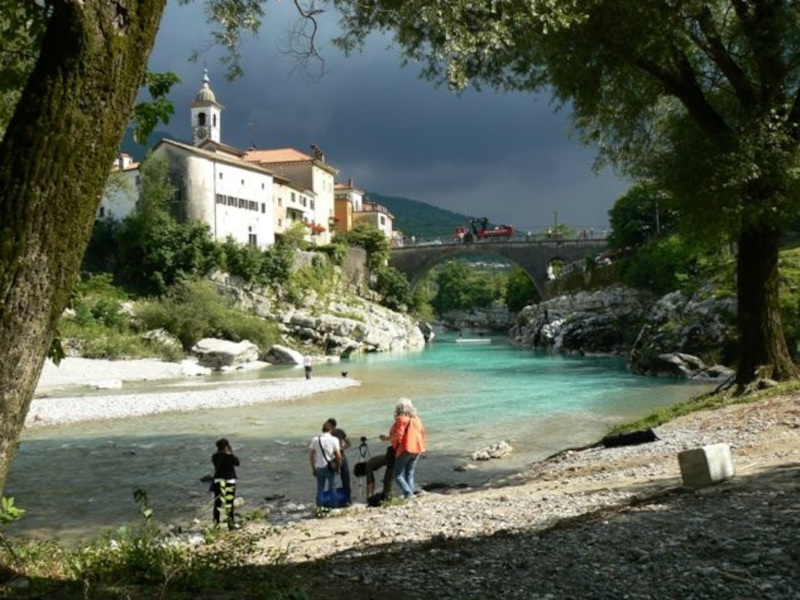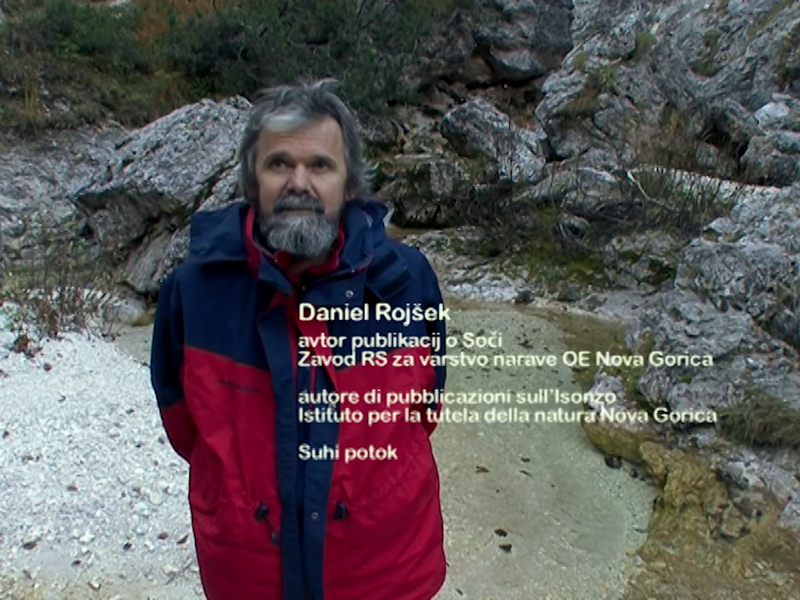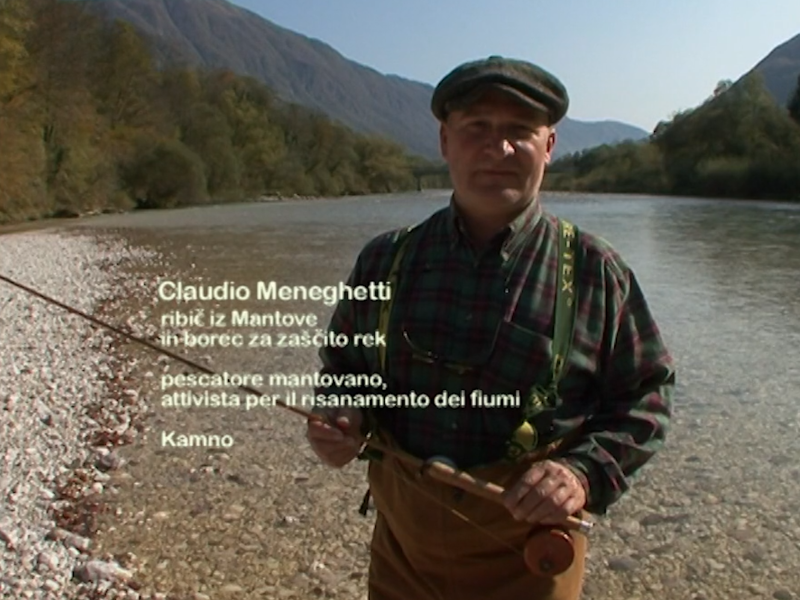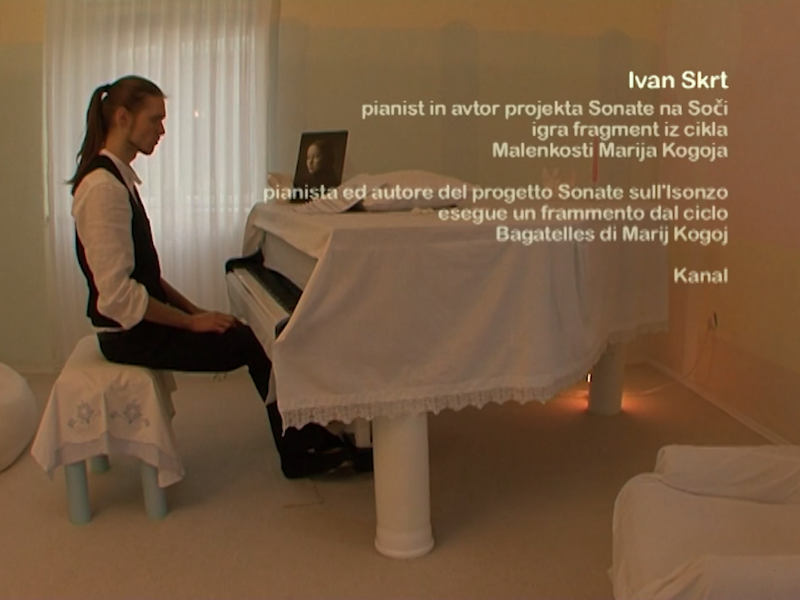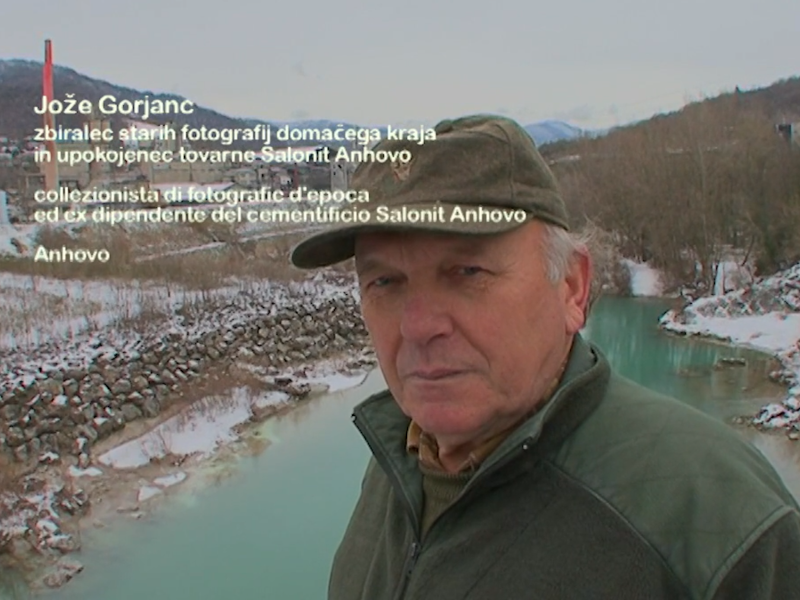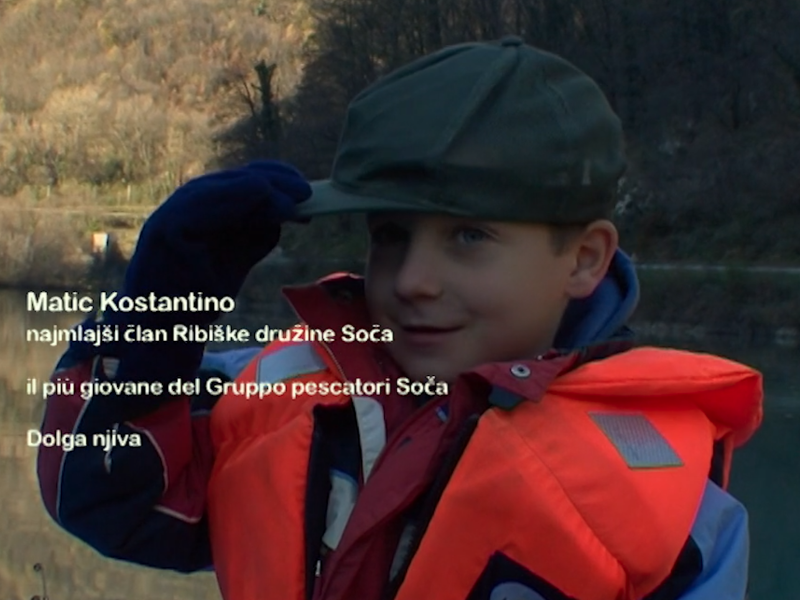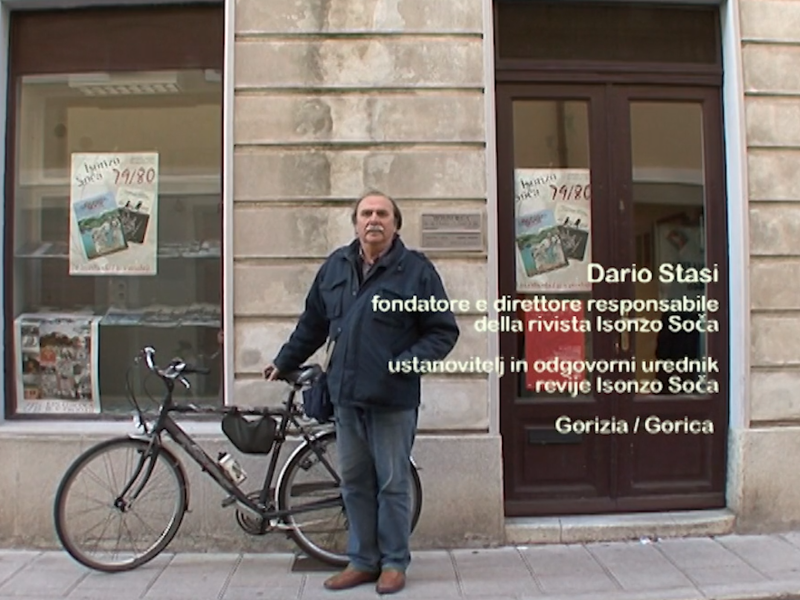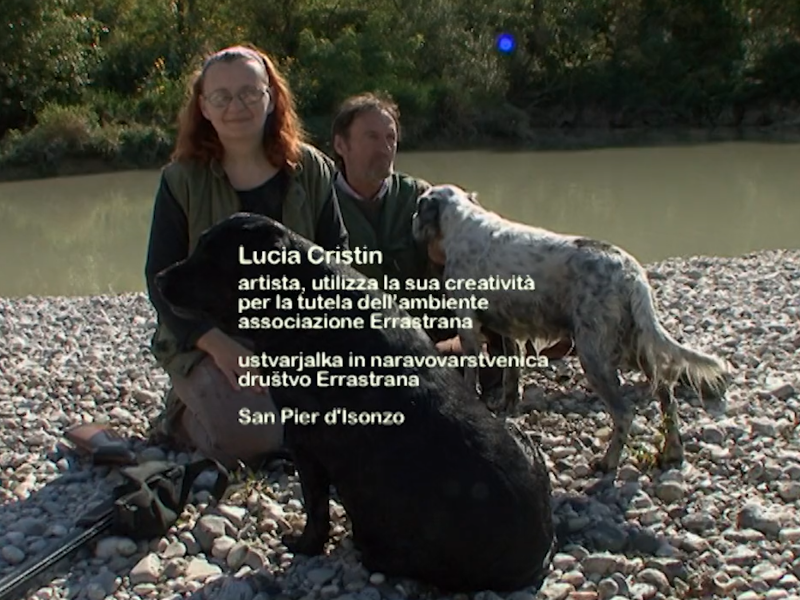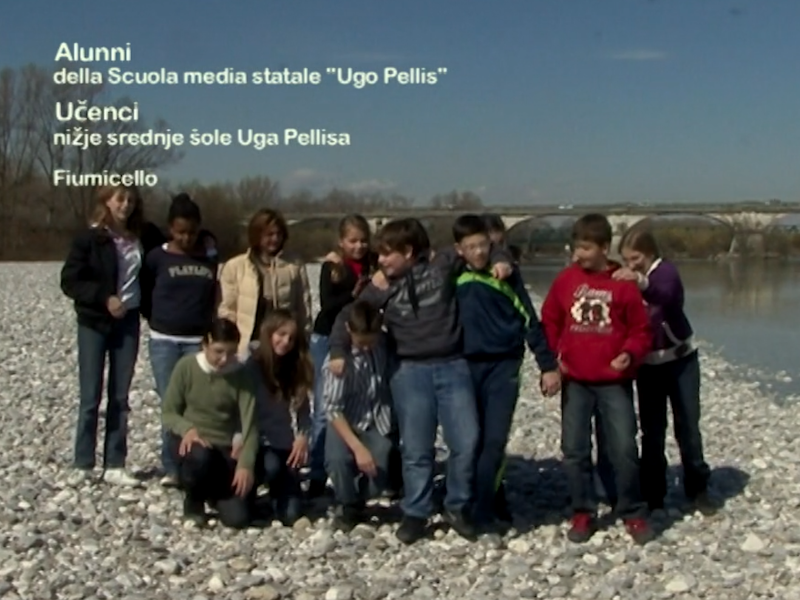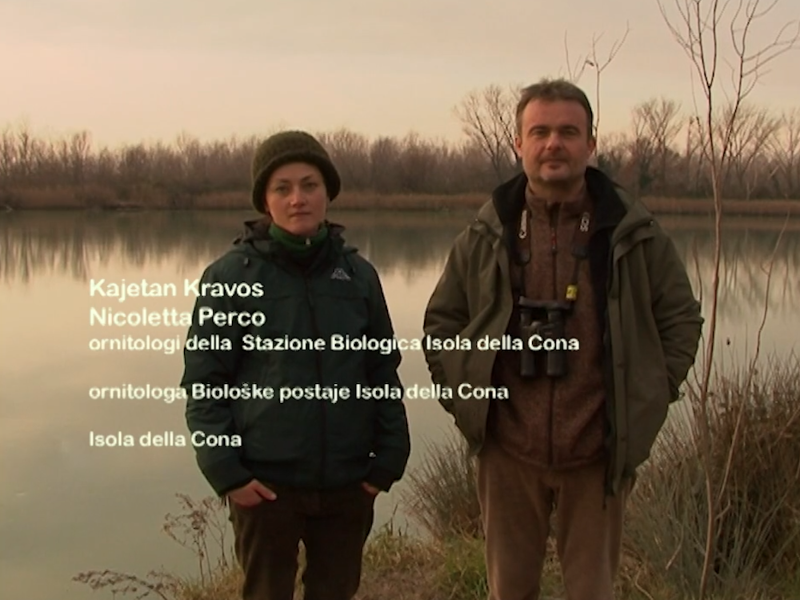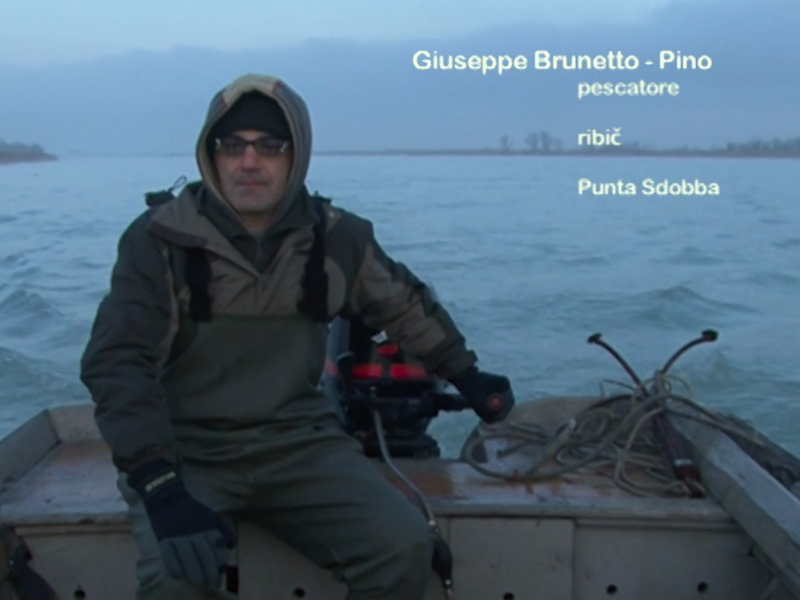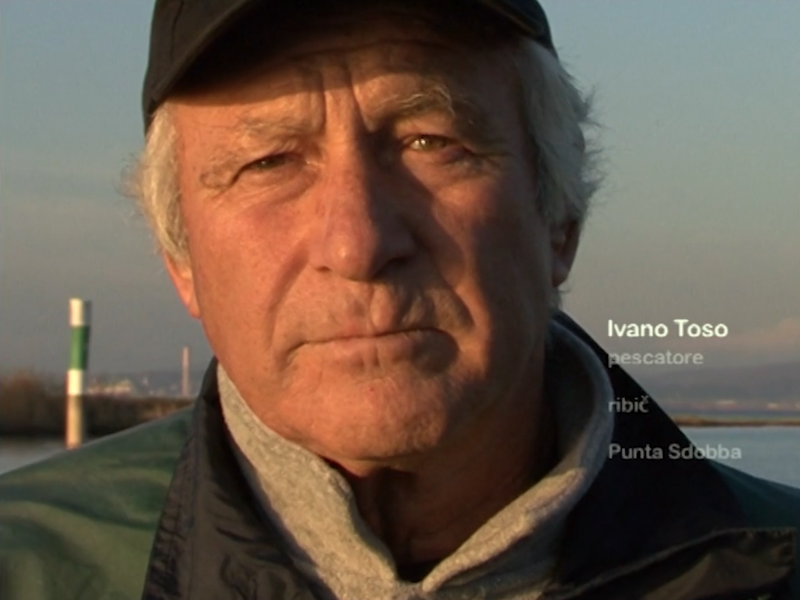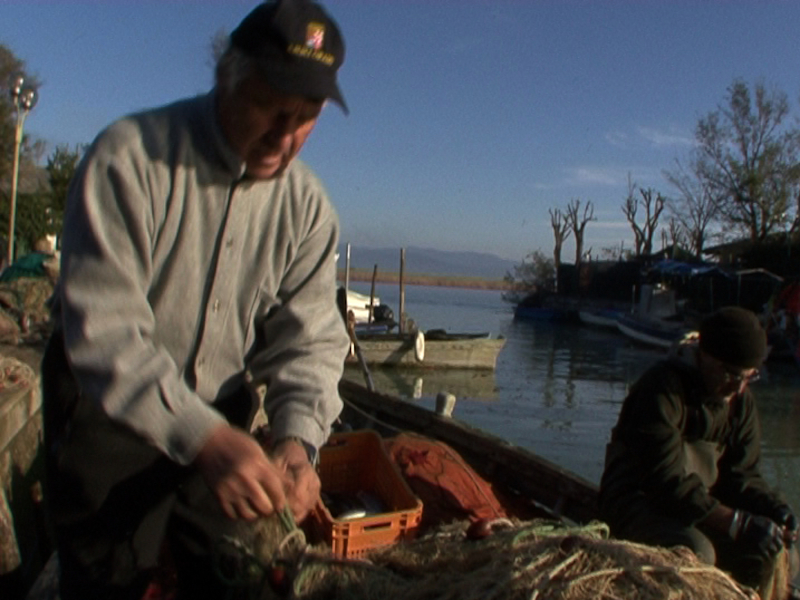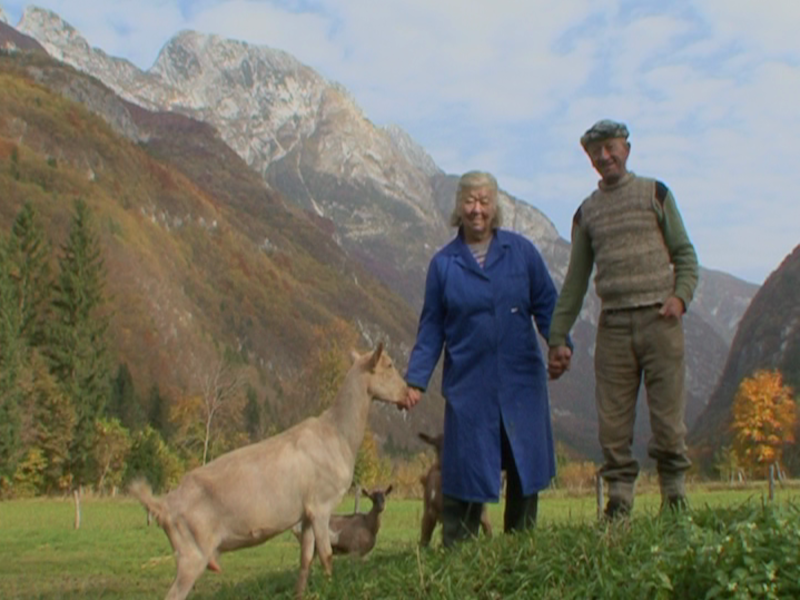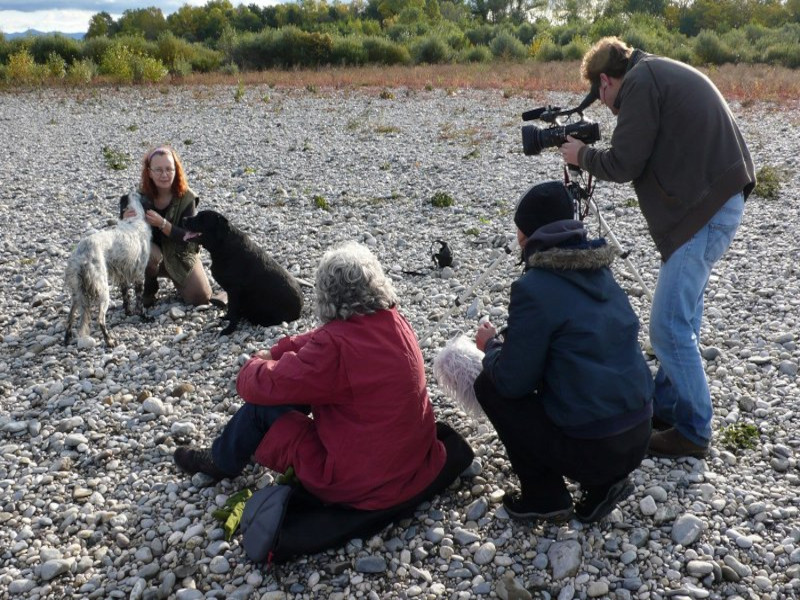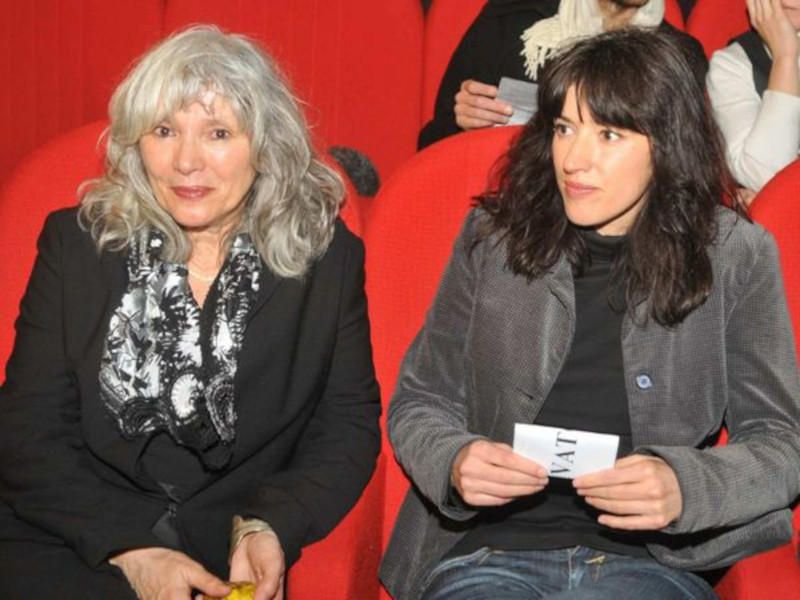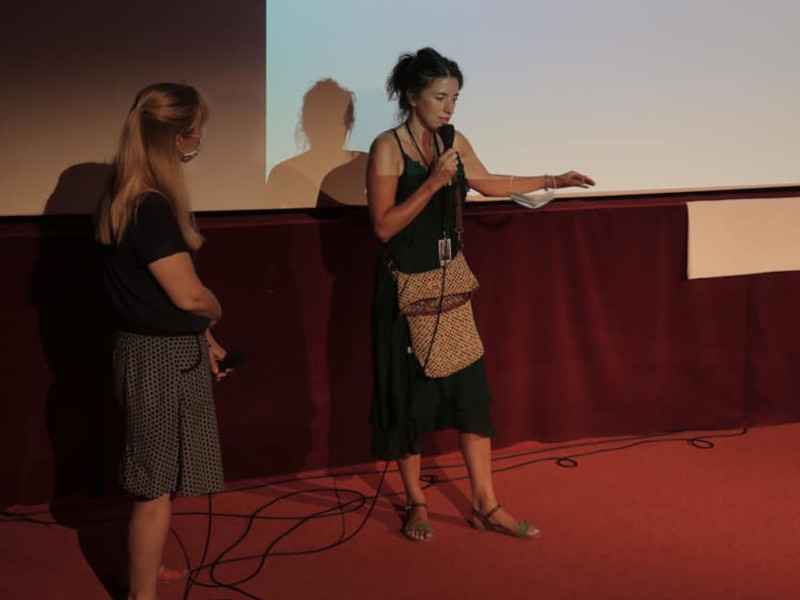Timeless River (2010)
Trenutek reke [SLV], Il tempo del fiume [ITA]
Documentary about the Soča river, whose course is parallel to the border between Italy and Slovenia. With the source in the Trenta Valley, at the altitude of 990m, the emerald colour river flows for 138km before entering the Adriatic Sea at the Gulf of Trieste. Encounters with the locals who live along the river reveal contemporary world’s contradictions in relation to nature and boundaries.
- Film kind: documentary
- Duration: 62’
- Year: 2010
- Country: SVN/ITA
- Language: Slovenian, Italian, Friulian
- Director: Anja Medved and Nadja Velušček
- Screenplay: Anja Medved and Nadja Velušček
- Director of photography: Ferruccio Goia
- Editing: Ferruccio Goia and Anja Medved
- Production: Kinoatelje [SLV] (Gorizia/Nova Gorica)
- Full credits [SLV]
- Film festivals: Trieste Film Festival (Italy, 2010), Sguardi Altrove (Milan, Italy, 2010), “Un film per la pace” festival (Medea, Italy, 2010), ETNOFILMFEST (Rovigo, Italy, 2010), Ischia Film Festival (Italy, 2010), Dnevi etnografskega filma [SLV] [Days of Ethnographic Film] (Ljubljana, Slovenia 2010), Sondrio Film Festival (Italy, 2010), Premio Sergio Amidei (Gorizia, Italy, 2010), Festival slovenskega filma [Festival of Slovenian Film] (Portorož, Slovenia, 2010), Postaja Topolove [ITA]/Stazione di Topolò (province of Udine, Italy, 2010), Dnevi poezije in vina [Days of Poetry and Wine] (Ptuj, Slovenia, 2010), Dnevi dokumentarnega filma [Days of Documentary Cinema] (Nova Gorica, Slovenia, 2010), Dokubazaar (Ljubljana, Slovenia, 2010), London International Documentary Festival (U.K, 2011), Trento Film Festival [ITA] (Italy, 2011), Trieste International Mountain Film Festival “Alpi Giulie Cinema” (2011), International Documentary Film Festival Dok.Ma [SLV] (Maribor, Slovenia, 2011), Kugy Mountain Film Festival (Malborghetto Valbruna, Italy, 2018), Kino Otok – Isola Cinema [SLV] (Izola, Slovenia).
- Awards: “La Scabiosa Trenta” Best Film Award, Premio Alpi Giulie Cinema, Trieste 2011; The award of the section “Man – River” [Človek – reka] at the ETNOFILMFEST, Rovigno (2010).
Videogallery
Photogallery
Film stills
Pictures from film shooting and screenings
Long synopsis
Soča has always been a border river. Flowing through two countries, Italy and Slovenia, it seems like it has a dual personality. Its relatively short riverbed connects two completely different landscapes, the Alps and the Mediterranean. The river also has two names. “Soča” [SLV] is a woman. “Isonzo” [ITA] is a man. Water of contradictions, Soča is alluring and dangerous. It is known for its emerald color, but also for the blood that was shed in its vicinity in World War I. In this region, the war not only destroyed lives, villages and fields, but also the attitude that people of that time had towards nature. The survivors had to start from scratch, and it seems that they set the basis of world we live in today in a hustle. Encounters with the locals along the Soča River reveal the contemporary contradictions related to peoples’ attitude towards nature. Compared to the life of a river, human life seems insignificant and yet, people today can interfere with the laws of nature. At a time when political borders are being removed, knowing how to set our own borders in relation to our common river, seems important.
Festival circulation
The documentary Timeless River has had an excellent film festival circulation, being shown in 13 film festivals and cinematographic and cultural gatherings only in 2010, the year of its release. While the 2010 festival screenings were limited to Italy and Slovenia, in 2011 the film had a major display in a wider European context, when it was shown in the London International Documentary Festival. Its regional tour continued in the Trento Film Festival in 2011. Thanks to the positive reviews (see for instance the text by Andrej Šprah in Kino Otok catalogue 2020), the good repute of the two filmmakers as well as the locals’ interest for the theme of the border, Timeless River has continued its occasional presence on the screens in the region until the present day. In that sense it was for instance shown in 2020 in Kino Otok – Isola Cinema [SLV]. The film’s principal theme, the way the river influences the locals’ lives and vice versa, has enabled it to be shown in the context of different events dedicated to nature and ethnography, such as the Days of Ethnographic Film (Dnevi etnografskega filma) in Ljubljana (2010), and ETNOFILMFEST in Rovigo, where it was awarded with the award of the section “Man – River” [Človek – reka] (2010), as well as the Trieste International Mountain Film Festival “Alpi Giulie Cinema”, where it was awarded with the La Scabiosa Trenta [ITA] award for the best film (2011).
Media and public interest
The good festival circulation, as well as the two gained awards have aided the film’s visibility in the regional media, in both Italian and Slovenian language. On the Slovenian side this includes reports in the big media outlets such as Radio Television of Slovenia [SLV], and newspapers “Delo [SLV]”, “Primorske novice [SLV]”, and “Primorski dnevnik [SLV]”. On the Italian side, the film has been mostly discussed in the local media from Trieste and the area, such as “La Voce di Trieste [ITA]”, and Bora.la. [ITA] A text about the film has also been published on the website dealing with the Balkans and Caucasus, Osservatorio Balcani e Caucaso Transeuropa [ITA].
About the filmmakers
Artist and documentary filmmaker from Nova Gorica, Anja Medved (1969) has devoted almost her entire film opus to the theme of the Italo-Slovenian/Yugoslav border. She holds a diploma in theatre and radio directing (Academy of Theatre, Radio, Film and Television - AGRFT, University of Ljubljana). She has often worked together with her mother Nadja Velušček (1948), filmmaker, active within the first group of members of the cross-border association Kinoatelje [SLV] (created in 1977 in Gorizia). Together Medved and Velušček created a documentary opus investigating relations between personal and collective memory in the disputed borderlands. They developed a specific documentary approach by collecting family memories about the border which was crossing through the town of Nova Gorica/Gorizia until 2007 when Slovenia became a part of the Schengen space. Their work has resulted in a collage of memories of two very different cities that share the same space. In 2012 they founded the production house and memory archive CINEMattic a.k.a. KINOkašča (Nova Gorica). Their work has been presented at film festivals and contemporary art exhibitions worldwide.

